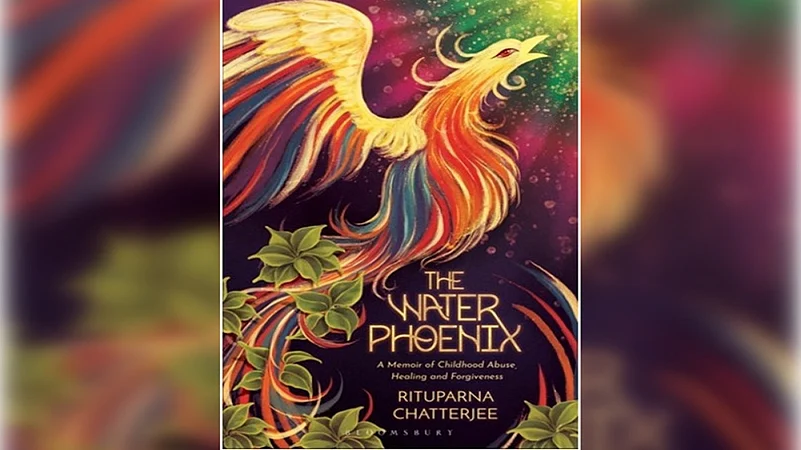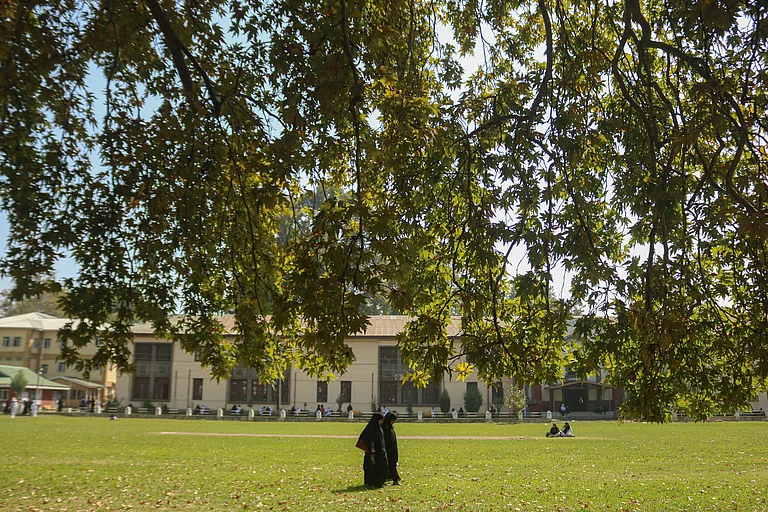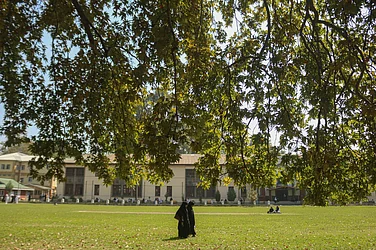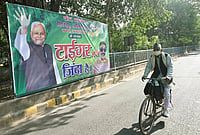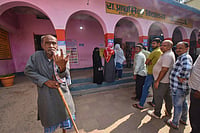In our society, where even stones and trees are worshipped, children are routinely beaten, neglected and abused. The daily news is rife with stories of abuse and neglect, often perpetrated in the name of discipline or protection. Female foeticide, instances of child marriage and the sexual abuse of minors - the statistics are frightening. Lakhs of children are robbed of childhood, and we as citizens are doing little to remedy that.
Child abuse is a pandemic in India (The BBC says every hour five kids are abused in India) Over 1 billion kids were abused in 2019, which is way more than the number of Covid-19 patients globally in 2020.
While the government now acknowledges education and nutrition as the essential entitlements of children, there has been little legislation or initiative to safeguard their most fundamental rights. Child protection is still nowhere on the nation's radar.
Haunting, evocative and brave, Rituparna Chatterjee's ground-breaking magic realism memoir “The Water Phoenix” gives voice to the countless victims of abuse who still find it difficult to speak of their trauma in today's India. Most of all, The Water Phoenix is the story of transcending trauma and coming home to oneself.
Rituparna Chatterjee, a celebrated financial journalist who reported for India’s premier pink paper from “Silicon Valley” for a decade, did a great job of several years of research to write this cogent and powerful memoir. Bringing her own real-life instances, this book is a guide for parents, policymakers, schoolteachers, paediatricians, and childcare specialists - indeed, anyone with a stake in the welfare of minors. And must for those who have been through similar abuse, fought such mental health trauma, felt the same sense of childhood misgivings as her.
After her sense of reality is shaken by a series of unexplained events, she, an atheist, finds her way to healing in the most unexpected quarters – looking within and opening herself up to a series of surreal spiritual events.
How does she cope with what has happened to her?
And how does she heal and find her way into a truly fulfilling life?
As a child Rituparna lost her mother at a tender age of five, the story begins like this. Nobody told her what was wrong with her mother and with that she realized never to trust grownups. Her life was filled with sadness and on top of that her heart disease added more to it.
She constantly missed her mother and cherished the small moments spent with her. But her pain turned out to be never-ending. To help her grow and have a loving family life, she is moved to a trusted relative. A small girl, who should have been fearless and spirited, Rituparna was instead driven into being a lone child who could only find solace in her books. As you read about her life, you find how she’s been dealing with anxiety, panic attacks, and severe depression, her constant shifts, her life in boarding school to her final settlement in Silicon Valley. As time goes by, she slowly starts detaching herself from family, trying to learn about life through her own experiences, this throws a light on her character. The way the author described her life makes your heart break into pieces.
Rituparna Chatterjee's book is an outpouring of a past that needed to be addressed.
In a Chapter “My Mothers and I” She writes:
“I have Maa, even if she is dead. If I am to call my new mother Ma, then what would I call Maa?”
“Call her Ma,” he replied instantly.
Grown-ups love planning and being prepared for anything and everything. Clearly, he had been expecting this question to pop up and had already rehearsed the answer in detail.
“She is giving up her entire world in the big city and moving to Nandurbar for you, so it would be mean if you didn’t call her Ma,” he explained. I stared at him. “You can call your Ma, Amaar Maa (my mother),” he said, putting the matter to rest.
Mother No. 1 had two as. Mother No 2 had one a. And with this simple twist, the mothers in my life settled into their newfound names, fitting as perfectly as pieces of a jigsaw puzzle. An ease that I envied as a growing misfit, a Complan girl misfit, who would try her whole life to fit in, in vain.”
Her sense of belonging is missing as she travels with her father across India, a phenomenon she has no control over. As she traverses the terrains, she meets men with varied tastes --- a few in indulging her whims while others in looking at her as an innocent child to be taken advantage of. She lacks a protector and learns early in her life that she is her own saviour. Inspiring, honest and poignant, “The Water Phoenix” will win hearts with an innocent narration and a sharp observation that has helped the author come to terms with her situation and will probably inspire a lot of us to understand what's stigma and what's not.
We can easily find out that book “The Water Phoenix” stands on its two feet because of the author's brave and unvarnished narration of the everyday abuse and injustice we fail to notice because we are conditioned to think that it's normal. It is simply breath-taking; this is a landmark piece of writing.
All these events leave a scar behind, sometimes physical but mostly emotional and mental. This book is a humbling reminder of what life was like through the eyes of the child you once were and how the experience colours your view of the future and yourself. This is also an inspirational testimonial that you are not defined by your trauma, but with gentleness, love and acceptance can survive and thrive. The Water Phoenix is a powerful memoir of childhood abuse, anguish, and redemption.
The house which was supposed to be her safe house became the very thing that harboured her nightmares. But due to the inhumanity of the world where we live they often grow up scarred and develop trust issues. They face many other forms of mental and emotional difficulties because of a stolen childhood. Rituparna’s memoir isn’t just a memoir that charts her life from a toddler to an adult mother, it’s a commentary on life, loss and longing—from a vantage point that was her tender eyes. It’s a capture of the texture of abuse, loss, sacrifice, healing and forgiveness; almost like an umbrella that tries to cover today, extending up to the distant past.
The final chapter is very appropriately titled “I Am Not My Story: Life as Art”.
“Life is art. The greatest art there is. What happened does not matter. What matters today is what you do with the past. When you let go of your story and live in the now, infinite possibilities show up…”
Rituparna Chatterjee belongs to that growing pantheon of Indian writers in the English language whose style is a new movement in literature that has quietly developed, almost unseen over the past few decades. This is a very intimate book that deeply delves into many subjects. For instance the body’s storage of trauma, processing that one has been abused, the business of forgiveness, and so on. Her life is indeed a coexistence of peace and friction, of hope and giving up, of affection and domination. But in a more concise sense, her life is an unadulterated, concentrated version of the various demons and angel’s life can conjure in front of us.
A journey of healing the self, the author's lens is kind, compassionate and not always of this world. As a wounded child, she explores the wonder and horror that childhood and life can be, all in the same breath. Have a beautiful life lesson for all those willing to learn and heal. As the book also gives us a hope of healing and being able to live a better life. The healing process which she opted helped her calm her mind and allowed her to forgive others for their sins. Though it is tough to live a normal life but the dream of a beautiful future is worth fighting for.
The book is brilliantly penned and it carries a warrior within itself, a warrior who puts up a fight for years to win over her demons and finally finding peace within herself. Being a memoir, it can be perceived how hard it must have been for the author to pour out her story. It is true that abuses can last sometimes for a lifetime if we give them the power to last and this was exactly what the author taught is in the book. It remains most impactful as a first-hand account of not just abuse but of healing. Not just of wounds but of repair. Not just of breakdowns but of buoyancy. It remains a light of hope for countless people.
In a holistic narration “The Water Phoenix” covers very largely the fabric of our lives; this is an elaboration on how the mind is stronger than the body, how love is more effective than enmity, and how forgiveness is more liberating than ego. The book is powerfully gripping and inspiring to its core!
Book: The Water Phoenix: A memoir of childhood abuse, healing and forgiveness by Rituparna Chatterjee
Publisher: Bloomsbury
Price :INR 699
(Ashutosh Kumar Thakur is Bangalore-based Management Consultant, Literary Critic, Curator and Advisor with Kalinga Literary Festival. He can be reached at ashutoshbthakur@gmail.com)






